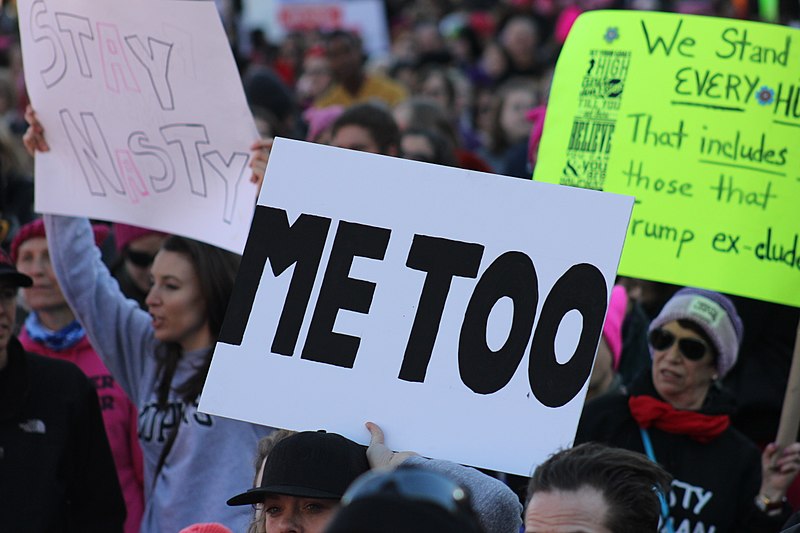One in 16 women’s first sexual experience was forced, study finds
Women whose first sexual experience was forced are more likely to face long-term health consequences, such as psychological trauma and pelvic pain
Anushree Dave • November 8, 2019

Baltimore Women's March, 2018. Protestors march with #MeToo poster board | Credit: Elvert Barnes J20 WOMEN'S MARCH 2018 BALTIMORE
The extent of sexual coercion or force that women encounter in their teens is highlighted in a new study that is one of the first of its kind. One in 16 — or 3.3 million — women in the U.S. felt coerced during their first sexual experience, according to the research published in JAMA Internal Medicine.
Women whose first sexual experience was forced have a higher risk for long-term health issues, such as psychological trauma, pelvic pain, and unwanted pregnancies and abortions.
“The one thing that surprised us is how strong the correlation was between forced sexual initiation and a wide range of health outcomes,” says Dr. Laura Hawks, research fellow at Cambridge Health Alliance and co-author of the new study.
The researchers analyzed survey responses from 13,310 women in the U.S. between the ages of 18 and 44. The team categorized women as being forced to have sex if they responded “not voluntary” to questions about their first vaginal intercourse with a man.
The average age of first forced sexual experience was 15 years old, while women whose first experience was voluntary were an average of 17 years old at the time. Those women’s male partners were six years older than the partners of women whose sex was voluntary (27 years versus 21 years).
Unwanted first pregnancy, endometriosis, and problems with ovulation or menstruation were among the long-term health outcomes reported by women whose first sexual experience was forced. Other problems include binge drinking, illicit drug use, poorer self-reported health, and difficulty completing tasks outside of the home because of a physical or mental condition. The research showed a correlation, not causality, between forced first sexual experience and negative health outcomes.
“One in four women are assaulted in college, and this study shows that coercive sexual experiences happen much earlier than that,” says Dr. Lauren Streicher, professor of obstetrics and gynecology at Northwestern University, who was not involved in the study. More education about consent should be mandatory for all high school students to reduce the prevalence of sexual coercion, Streicher says.
The results of this study could provide physicians with a better picture of the intimacy challenges and violence faced by their teenage patients. And in the era of #MeToo and #TIMESUP, studies like this could help inform the development of policies aimed at reducing sexual coercion at a systems level, the researchers say.
“What we’re really talking about is power and control,” Hawks says. “In a society where women are universally treated lesser than — and we are learning about how that is pervasive in workspaces and classrooms — it’s going to be impossible to reduce rates of violence unless we address the inequality that causes that.”